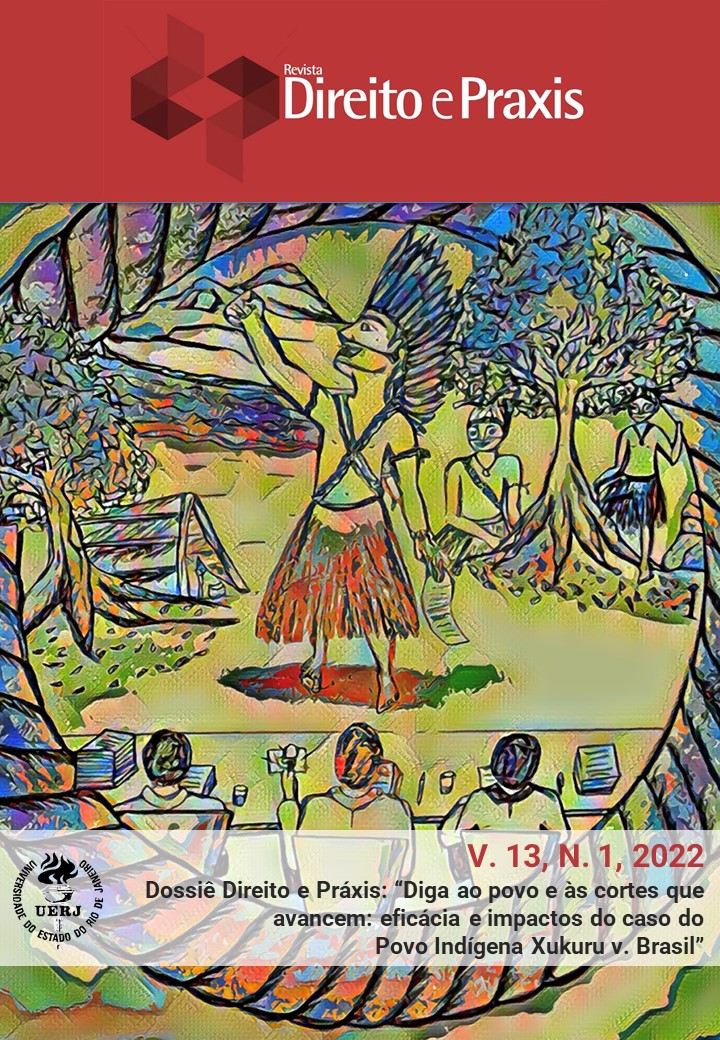A profecia da violência sem trauma aparente: justiça de transição, memória e a exceção brasileira/ The prophecy of violence without appearing trauma: transitional justice, memory and the Brazilian exception
Palavras-chave:
Direito, Justiça de transição, Direito à memória e à verdade, Ditadura civil-militar, Exceção brasileiraResumo
DOI: 10.1590/2179-8966/2020/49027
Resumo
Este artigo tem em seu escopo três principais objetivos: apresentar os mecanismos da justiça de transição, reconstruir a história do regime, da legalidade de exceção e dos expedientes de violência utilizados ao longo da última ditadura (1964-1985) vivida pelo país e refletir criticamente o espúrio processo de transição pelo qual o Brasil passou, fato que acarretou diversas consequências negativas, as quais serão devidamente assinaladas e criticadas ao longo deste ensaio. Para realizar estes objetivos, o artigo foi dividido em quatro diferentes partes: primeiro, apresenta as principais características da justiça transicional; em segundo lugar, promove a reconstrução e exposição de três fases críticas da justiça transicional, tendo por base a genealogia delineada por Ruti Teitel; em um terceiro movimento, utilizando-se do fio deixado por Teitel, especialmente no que tange à difícil relação existente entre verdade, memória e justiça, é feita uma reconstituição do último período ditatorial vivido no Brasil, no desiderato de demonstrar como houve no país o perfeito cumprimento da profecia da violência sem trauma aparente, ou seja, a ocorrência de uma transição negociada, que teve por objetivo promover o esquecimento dos crimes, violência e opressão do regime ilegal; para, por fim, promover também uma crítica da legalidade de exceção utilizada pela ditadura civil-militar brasileira para implementar e justificar sua extrema violência e eliminação da dissidência, demonstrando, além disso, como a adoção de mecanismos de justiça transicional poderiam ter colaborado positivamente para o processo de transição brasileiro e na eliminação dos restos da ditadura, os quais continuam produzindo efeitos altamente deletérios no tecido social brasileiro.
Palavras-chave: Direito; Justiça de transição; Direito à memória e à verdade; Ditadura civil-militar; Exceção brasileira.
Abstract
This article has in its scope three main objectives: to present the mechanisms of transitional justice, to reconstruct the history of the regime, the legality of exception and the expedients of violence used during the last dictatorship (1964-1985) lived by the country and to critically reflect the spurious transitional process that Brazil underwent, a fact that had several negative consequences, which will be duly highlighted and criticized throughout this essay. To accomplish these goals, the paper was divided into four different parts: first, it presents the main characteristics of transitional justice; secondly, it promotes the reconstruction and exposition of three critical phases of transitional justice, based on the genealogy outlined by Ruti Teitel; in a third movement, using the thread left by Teitel, especially regarding the difficult relationship between truth, memory and justice, a reconstruction of the last dictatorial period lived in Brazil is made, in order to demonstrate how there was in the country the perfect fulfillment of the prophecy of violence without apparent trauma, that is, the occurrence of a negotiated transition, which aimed to promote the forgetting of crimes, violence and oppression of the illegal regime; lastly, it is also promoted a critique of the legality of exception used by the Brazilian civil-military dictatorship to implement and justify its extreme violence and elimination of dissent, further demonstrating how the adoption of transitional justice mechanisms could have contributed positively to the Brazilian transitional process and on the elimination of whats remains of the dictatorship, which continues to produce highly deleterious effects on the Brazilian social fabric.
Keywords: Law; Transitional justice; Right to memory and truth; Civil-military dictatorship; Brazilian exception.
Downloads
Downloads
Publicado
Como Citar
Edição
Seção
Licença
Os textos são de exclusiva responsabilidade de seus autores.
É permitida a reprodução total ou parcial dos artigos da Revista Direito e Práxis, desde que citada a fonte.
Este trabalho está licenciado sob uma Licença Creative Commons 4.0, Atribuição-Sem Derivações.
Esta licença permite copiar e redistribuir o material em qualquer suporte ou format para qualquer fim, mesmo que comercial, desde de que citada a autoria original.
This work is licensed under a Creative Commons Attribution 4.0 International License.




